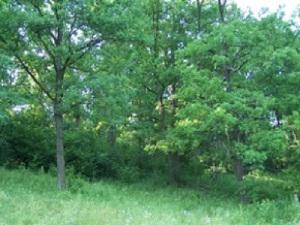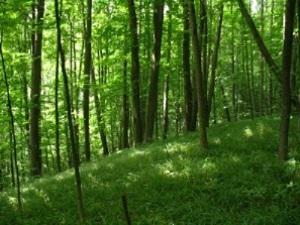Nataliia Pashkevich
The aim of our project is to make an observation of unique rare broadleaved forests of Mezynsky National Nature Park, which are found side by side with arable lands and settlements under anthropogenic influence.

Potentillo albae-Quercetum oak forests.
Aim of our project is to make an observation of unique rare broadleaved forests of Mezynsky National Nature Park, which are found side by side with arable lands and settlements under anthropogenic influence. Estimation of these biotopes characteristics will help us to identify the main ecological threats and ways for their minimization, develop ecological routes and zonation of the Park for its management and conservation improvement.

Hornbeam forests with Carex pillosa.
Mezynsky Park was organized on Desna left riverside in 2006 on the territory of about 10 000 ha. Broadleaved forests of the parks are not typical and that is why rare for Polissia region. Many rare plant and animal species and rare plant communities inhabit these forests. Nevertheless, flora, vegetation and fauna of park are still needed deep study.
Park forests are mosaic and presented by oak, oak-hornbeam and oak-linden forests. Some of the oak trees are more than 100 years old. Since the park is situated along Desna, one of the largest rivers in Ukraine, it includes rare European habitats such as riparian forests galleries, which need special protection. Often these forests border with private agricultural lands. The infrastructure, tourism and educational programs are developed weakly or do not developed at all because of insufficient financing by the government. All mentioned above lead to necessity of special research, which would contribute to conservation of local forests and sustainable environmental management.
Our program covers full-scale research activity, estimation of the forest biotopes state and their biodiversity, degree of disturbance and threats. The method of bioindication assessment of natural biotopes will help to (1) establish the Park biotopes as important key territories within the ecological network of Natura 2000 and Emerald in Ukraine (2), provide complex monitoring activities, and (3) prevent from environmental losses and threats in the future.
We plan to develop the practical recommendations on sustainable ecological tourism and promote sustainable development knowledge among the local population. It will include creation of the web-site and editing of research papers, development of ecological routes network, making excursions, ecological schools and workshops. Such complex activities, scientific researches and social work, will provide conservation of Mezynsky National Nature Park's forests for future generations.